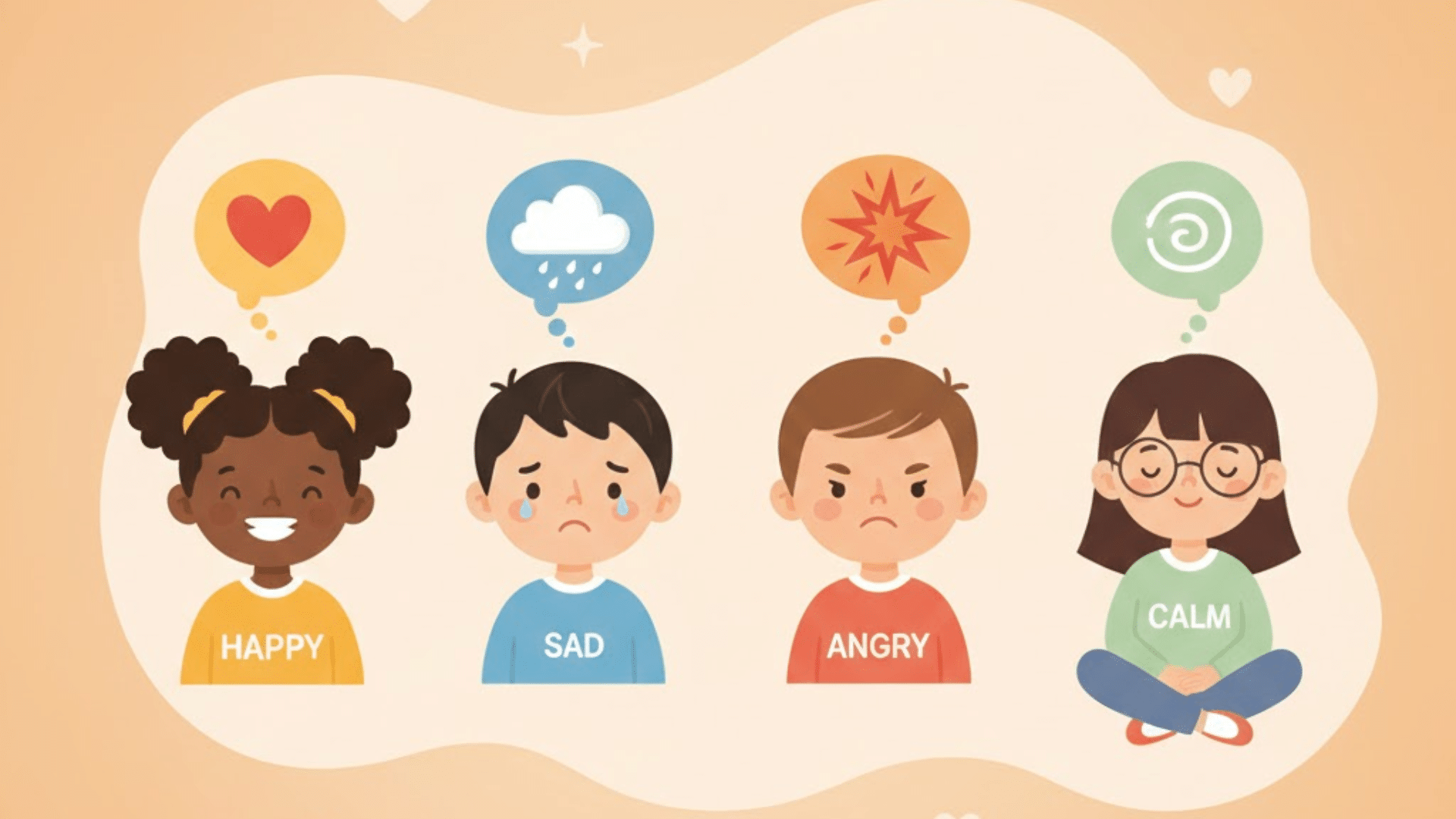Have you ever wondered why families are choosing homeschooling over traditional school?
Homeschooling is becoming a choice many families consider today. It offers an alternative to traditional classrooms and gives more control over how and what children learn.
Parents see it as a way to create a safe, flexible, and focused learning space.
Here, I’ll share the key benefits that make homeschooling appealing, from academic advantages to family and lifestyle improvements.
Why People Are Adopting Homeschooling
Many families are turning to homeschooling for different reasons. The COVID-19 pandemic was a major turning point, as parents saw their children benefit from flexibility, safety, and stronger family connections.
Even after schools reopened, many chose to continue because it felt more personal and manageable.
At the same time, the homeschooling market has grown, offering books, online resources, and tutors that make teaching at home easier.
In regions with crowded classrooms or poor facilities, parents see homeschooling as a way to provide more attention and quality learning.
The rise of digital platforms has added further support, giving families access to lessons, quizzes, and live classes that make homeschooling both practical and appealing.
Benefits of Homeschooling
Now that we know why parents pick homeschooling, let’s see what it gives back. Homeschooling not only fixes problems but also helps kids learn better and feel supported.
Academic Benefits

Homeschooling gives children the chance to learn in ways that fit them best, making lessons more personal and effective.
1. Personalized Learning
At home, every child gets special attention. Parents or tutors can slow down when a lesson is tough or move ahead when it’s easy.
This helps kids understand subjects better and keeps them from feeling left out or bored. Over time, children build stronger confidence in their abilities.
2. Flexible Curriculum
One of the biggest advantages of homeschooling is the freedom to choose what and how children learn. Parents are not limited to a fixed school plan.
They can focus on subjects that interest their child and adjust lessons to match their learning style. This means kids can spend more time on areas they enjoy, such as art, music, coding, or science, while still covering the basics.
3. Better Focus and Efficiency
At home, children face fewer distractions than in large classrooms. Without constant noise, peer pressure, or long school routines, kids often finish their lessons faster.
This gives them extra time for hobbies, rest, or exploring new skills while still keeping up with academics.
These academic benefits show how homeschooling helps kids stay focused, learn at their own pace, and enjoy their studies.
Social and Emotional Benefits

Homeschooling shapes more than academics: it also supports emotional growth and stronger relationships. Kids can thrive in a safe, supportive environment.
4. Stronger Family Bonds
Spending more time together naturally brings families closer. Daily lessons, projects, and even casual talks during the day create strong connections.
Parents understand their child’s strengths, struggles, and interests better, while children feel seen and supported. Stronger family bonds give kids a steady base of love and trust as they grow.
5. Safe and Supportive Environment
Homeschooling provides a calm, safe space where children feel respected and cared for. Without the pressure of competition, they can focus on learning and exploring ideas freely.
This sense of safety also encourages kids to ask questions, make mistakes, and try new things without fear of being judged. A supportive home setting builds confidence and helps kids feel secure in who they are.
6. Confidence and Independence
Homeschooling gives children more control over how they learn. They often practice setting goals, organizing their time, and completing work on their own.
These daily habits encourage discipline and self-motivation. Over time, kids build independence, which prepares them for bigger responsibilities in the future.
These social and emotional benefits show how homeschooling builds confidence, safety, and stronger family relationships.
Lifestyle and Practical Benefits

Homeschooling isn’t just about academics. It also gives families more freedom in daily life, health choices, and real-world learning experiences.
7. Flexible Schedule
Families aren’t tied to strict school hours. Children can study at times when they feel most focused, which makes learning smoother and more effective.
Parents can also fit lessons into travel or everyday activities, turning ordinary moments into learning opportunities. This flexibility makes learning more enjoyable and meaningful.
8. Health and Well-Being
A flexible schedule lets kids learn without missing family experiences. Homeschooling often leads to better daily habits.
Kids can get more sleep, enjoy fresh meals at home, and avoid the stress of commuting or crowded classrooms.
Parents can balance study with breaks, exercise, and play, which helps children stay calm and energized. Better health and balance give kids the energy to learn with ease.
9. Real-World Learning Opportunities
Learning at home creates room for hands-on experiences. Cooking, gardening, volunteering, or visiting museums all turn lessons into real-life practice.
These activities not only make learning fun but also help children see how knowledge connects to everyday life. Real-world learning makes homeschooling practical and memorable.
Other Benefits of Homeschooling

Beyond academics, emotions, and lifestyle, homeschooling also offers extra advantages that make it appealing to many families. These benefits create more freedom, stronger connections, and better support for children’s growth.
10. Customized Learning Environment
Parents can set up a quiet, comfortable space that fits their child’s needs. Without the pressure of large groups, children feel more relaxed and ready to focus on their studies.
This makes learning smoother and less stressful. A customized environment helps children feel relaxed and ready to do their best work.
11. Stronger Parent Involvement
Homeschooling gives parents full awareness of what their children are learning each day. They can guide values, habits, and long-term goals more closely. Families also share in both the responsibility and the success of education, making learning a team effort.
12. More Time for Passions and Talents
With a flexible schedule, kids can spend extra time on hobbies like music, sports, or art. Extra time for passions helps kids grow in areas they love most.
They can practice or train during the day instead of waiting until after school, which gives their special talents more attention and support.
13. Financial Flexibility
Homeschooling can reduce costs linked to uniforms, transportation, and school fees. Families can also choose free or affordable resources, such as library books or online lessons, and focus spending on what their child truly needs.
Financial flexibility makes homeschooling easier to adjust to different family budgets. This makes homeschooling easier to fit into different budgets while still giving kids a good education.
14. Community Connections
Many homeschool families join co-ops, clubs, or local groups to stay socially active. Community connections give homeschoolers plenty of ways to build friendships and teamwork.
Children meet peers through sports, events, and community activities, which build real-life friendships and social skills outside the classroom.
15. Special Needs Accommodation
Homeschooling makes it easier to adjust lessons for children with special needs or learning differences.
Parents can create a pace that works best, use teaching tools that fit their child, and give more one-on-one attention. A flexible approach makes homeschooling a good option for children who need extra care in learning.
16. No Bullying
One big relief with homeschooling is that children don’t face bullying. At home, they learn in a safe place without fear of being picked on or left out.
This security helps them focus on lessons and feel more confident about themselves. Without bullying, kids can learn in peace and grow in confidence.
17. Parent-Child Bonding
Homeschooling gives parents extra time to connect with their kids. Beyond lessons, families share meals, conversations, and daily routines.
This close bond helps children feel secure and loved, while parents understand their child’s needs more deeply. Parent-child bonding makes home education warm and supportive.
18. School at Home
Homeschooling turns the home into a learning space. The living room can be a classroom, the kitchen a science lab, and the backyard a nature center.
This makes learning an integral part of daily life, rather than something that only occurs in a separate building. With school at home, learning feels natural and blends into everyday family life.
Positive Outcomes of Homeschooling vs. Traditional Schooling
Homeschooling and traditional schooling both have their strengths, but many families notice clear positives when teaching at home.
| Aspect | Homeschooling | Traditional Schooling |
|---|---|---|
| Learning Pace | Children learn at their own speed, with extra time for tough subjects or faster progress when ready. | All students follow the same pace, which may be too fast or too slow for some. |
| Curriculum | Flexible: parents can add interests like art, music, or practical skills. | Fixed: follows a set curriculum with limited room for extra topics. |
| Focus | Fewer distractions, one-on-one attention, shorter lessons with better results. | Large classes with noise and interruptions reduce focus. |
| Environment | Safe, calm, and supportive; no bullying or peer pressure. | Risk of bullying, peer pressure, and crowded classrooms. |
| Family Time | Stronger parent-child bonds with shared routines and activities. | Limited family time due to school hours and homework. |
| Health & Well-Being | More rest, healthier meals, flexible breaks, and outdoor play. | Early schedules, limited breaks, and cafeteria meals. |
| Social Growth | Socialization through clubs, co-ops, sports, and community groups. | Daily socialization with peers in a classroom setting. |
| Life Skills | Real-world learning, like cooking, gardening, or managing money, is included in daily lessons. | Life skills are taught less often; the focus is mainly on academics. |
| Academic Outcomes | Many homeschoolers score above average on tests and build independent study habits. | Results vary widely: teaching pace may not fit every child. |
| Flexibility | Families can travel, adjust schedules, and include personal interests. | Strict schedules tied to school hours and calendars. |
In short, homeschooling gives families more control and flexibility, while traditional schools offer structure and group learning.
The choice depends on each child, but homeschooling often provides freedom, focus, and stronger family connections.
Fun Facts About Homeschooling
Homeschooling isn’t only about lessons and textbooks. It also has a fun side that shows how different and flexible learning at home can be.
- 87% of peer-reviewed studies find that homeschooled students perform significantly better on social, emotional, and psychological development measures than traditionally schooled peers.
- Many conventional classroom teachers choose to homeschool their own children.
- Homeschooled children often engage in more than 5 extracurricular or community activities outside the home.
- Homeschooled students come from a wide variety of backgrounds, incomes, races, and religions, showing there’s no “typical” homeschool family.
- The number of homeschooled children in the U.S. has grown to approximately 3.7 million.
- Up to 24.5% of homeschooled children are enrolled in one or more grades above their age-level grade.
- In the UK, homeschooling usage has risen by 41% over a recent four-year period.
Homeschooling can be surprising, inspiring, and fun, proving that education at home goes far beyond the classroom.
Conclusion
Homeschooling offers children a chance to learn in a way that suits their needs while giving parents more control and involvement.
It creates space for stronger family connections, flexible routines, and learning that feels meaningful.
Every family is different, but the benefits of homeschooling can be life-changing when the approach matches the child’s personality and the parents’ goals.
If you’re considering it, think about how these advantages could support both your child’s growth and your family’s daily life.
If you want to explore more, keep following along for tips and guides that can help you make the best choice for your family.










